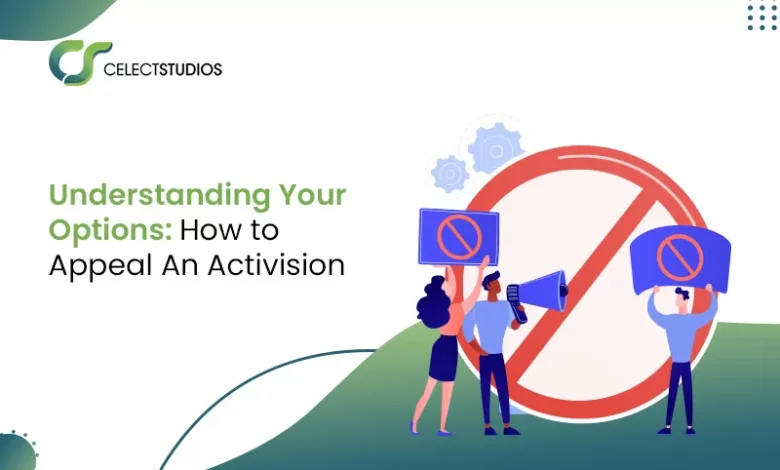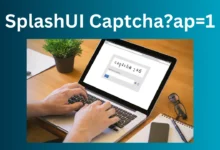Tips and Tricks for Crafting a Successful Activision Ban Appeal

Are you feeling frustrated after receiving an Activision ban? You’re not alone. Many players find themselves facing bans in popular titles like Call of Duty, and the road to getting back into the game can often seem daunting. But fear not! Crafting a successful Activision ban appeal is possible with the right approach. With some effective tips and tricks up your sleeve, you can navigate this process smoothly.
Whether you’re unsure why you were banned or how to construct a compelling case for your appeal, this guide has got you covered. Get ready to dive into strategies that will help improve your chances of rejoining the action on the battlefield!
Understanding Activision’s Ban Appeal Process

Understanding Activision’s ban appeal process is the first step toward reclaiming your account. The company has a structured system in place that evaluates each appeal on a case-by-case basis.
When you submit an appeal, it’s essential to provide accurate information about your gaming account. This includes your Activision ID and any relevant details related to the incident leading to the ban.
Activision typically reviews appeals submitted through its official support website. They may take several days or even longer to respond due to the volume of requests they receive.
During this review period, it’s crucial not to create multiple appeals for the same issue. Doing so could complicate matters and lead to further delays in processing your request.
Familiarize yourself with their community guidelines, as understanding these rules can strengthen your case when crafting your appeal.
Reasons for Receiving a Ban on Call of Duty
Receiving a ban in Call of Duty can be frustrating, especially when you’re unsure why it happened. Several reasons can lead to this unfortunate outcome.
One common cause is cheating. Players who use hacks or exploits to gain an unfair advantage often face immediate bans. Activision’s strict anti-cheat measures ensure that fair play remains a priority.
Another reason could be toxic behavior. Excessive harassment, hate speech, or unsportsmanlike conduct can result in disciplinary action against players.
Account sharing also raises red flags. If your account shows signs of being accessed from multiple locations or by different users, the system may interpret this as suspicious activity.
Using unauthorized third-party software can trigger a ban as well. Always stick to official tools and platforms for the best experience while playing. Understanding these factors helps you navigate the gaming landscape more responsibly.
Preparing Your Appeal: Gathering Evidence and Writing Your Case
When preparing your Activision ban appeal, the first step is gathering solid evidence. This could include screenshots or recordings that showcase your gameplay.
Make sure to document every detail surrounding the ban. Note any unusual activity on your account or unexpected behaviors during gameplay.
Next, focus on crafting a clear and concise statement. Start by expressing your understanding of the situation and acknowledging the seriousness of bans in Call of Duty.
Use straightforward language. Avoid jargon or overly complex terms that might confuse reviewers.
It’s crucial to present yourself as cooperative and willing to improve. Highlight any steps you’ve taken since receiving the ban to ensure compliance with community standards.
Review your appeal for spelling errors and clarity before submission. A polished presentation can make a significant difference in how seriously your case is taken.
Common Mistakes to Avoid in Your Appeal
When crafting your Activision ban appeal, avoiding common pitfalls is crucial. One major mistake is being overly emotional in your language. While it’s natural to feel frustrated, a calm and professional tone resonates better.
Another frequent error is failing to provide sufficient evidence. Simply stating that you didn’t cheat or break the rules isn’t enough. Support your claims with screenshots or relevant data.
Avoid generic templates as well; personalizing your message shows genuine effort and understanding of the situation. This increases the chances of a favorable review.
Don’t forget about clarity. If reviewers must sift through a muddled explanation for details, they might overlook critical points altogether. Keep it concise and straightforward while ensuring all important information is included to strengthen your case.
Submitting Your Appeal and Waiting for a Response
Once you’ve crafted your appeal, it’s time to submit it. This step is crucial and should be approached with care. Make sure you double-check all the details before hitting send.
After submission, patience becomes your best friend. Activision typically takes several days to review appeals due to the sheer volume they process. During this period, it’s important not to flood their support system with follow-up inquiries; doing so can hinder rather than help your case.
Keep an eye on your email for updates or requests for additional information from their team.
If you miss these communications, it could delay the resolution of your appeal significantly.
While waiting, consider engaging in other activities or games that don’t involve a ban situation. It helps take your mind off things while ensuring you’re prepared for either outcome once a decision arrives in your inbox.
Dealing with a Denied Appeal: Next Steps and Options
Receiving a denial for your Activision ban appeal can be disheartening. However, it’s
important not to lose hope immediately.
First, take some time to review the reasons given for the denial. Understanding their perspective might provide insights into what went wrong in your initial appeal.
Consider gathering more evidence or testimonials that support your case. If you have any gameplay footage or logs that demonstrate your innocence, compile these materials before attempting another submission.
You may also explore gaming forums and communities where other players share their experiences with bans and appeals. Sometimes, they offer valuable tips on how to enhance future submissions.
If you believe there has been a significant error in judgment regarding your ban, don’t hesitate to reach out again after thorough preparation. Persistence can pay off when handled thoughtfully and strategically.
Conclusion
Crafting a successful Activision ban appeal can feel daunting, but with the right approach and knowledge, you can effectively present your case. Understanding the ban appeal process is crucial. Familiarize yourself with why bans occur in Call of Duty so that you can address any specific issues directly.
When preparing your appeal, ensure that you gather all relevant evidence to strengthen your argument. This includes any screenshots or gameplay recordings that may support your claims. Writing clearly and concisely will help convey your points effectively.
Be aware of common mistakes when submitting an appeal—such as being overly emotional or using offensive language—as these can hinder rather than help your case. Submitting correctly and patiently waiting for a response shows professionalism, which could positively influence the outcome.
If faced with a denied appeal, assess what went wrong before deciding on next steps. There are options available for those willing to pursue them further.
Navigating this process requires patience and persistence. By following these tips and tricks for crafting a successful Activision Ban Appeal, you’ll be better equipped to tackle the situation head-on while maintaining respect for both yourself and the gaming community at large.





